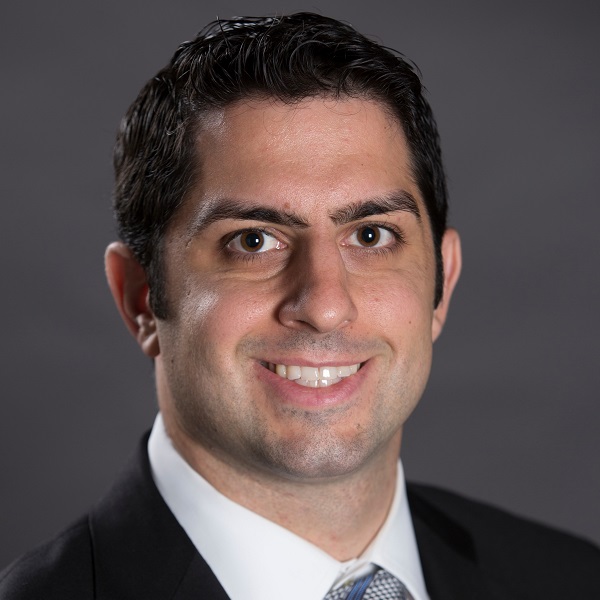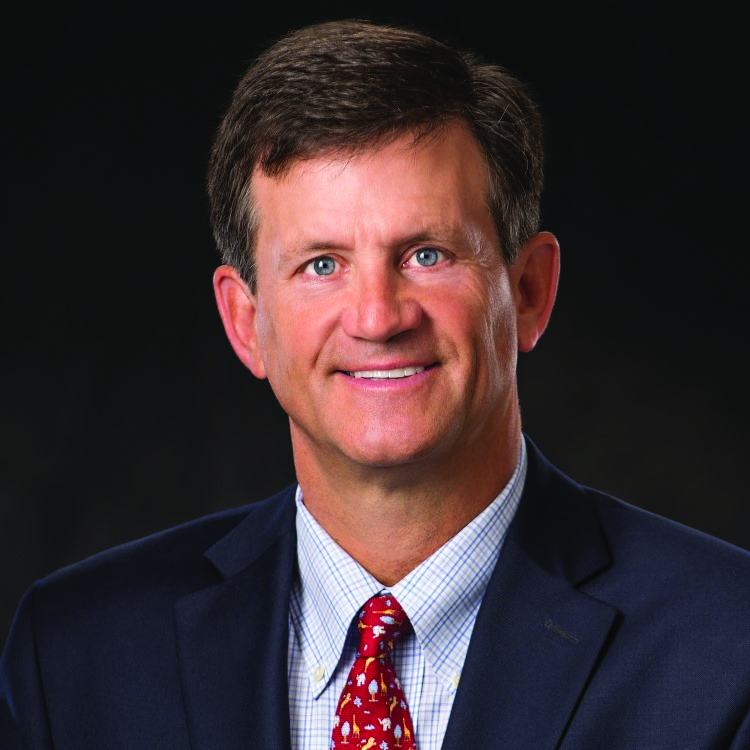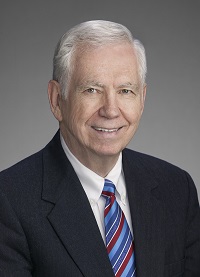EB5 Investors Magazine is pleased to announce the Top Attorneys in Specialized fields. To be eligible, these distinguished attorneys are recognized as top attorneys in specialized EB-5 practice groups, which focus on EB-5 policy and lobbying matters, complex cases and immigration compliance.
For more information or to contact any of these professionals, we invite you to view their listings at www.EB5Investors.com/directories.
JONATHAN BASELICE
U.S. CHAMBER OF COMMERCE

Jonathan Baselice currently serves as the executive director of immigration policy at the U.S. Chamber of Commerce. He joined the chamber in June 2014 and he advocates for sensible immigration policies before the U.S. Congress and federal agencies. Prior to joining the chamber, Baselice served on U.S. Senator Marco Rubio’s staff for more than three years. He was one of Senator Rubio’s lead immigration policy advisors during that time, including the senator’s effort to pass comprehensive immigration reform legislation in the 113th Congress. Baselice is a licensed attorney in the states of New York and Florida.
How would you like to see the EB-5 industry change for a better future?
A better future for EB-5 rests in Congress’s hands and our elected representatives must find a way forward to enact sorely needed program changes. Ideally, Congress would enact a permanent reauthorization of the EB-5 regional center program, increase the annual allotment of EB-5 visas, revise the current minimum investment levels and targeted employment area definitions to provide for a truly competitive market to emerge that allows projects all across the country to attract EB-5 investment, and implement various integrity measures to improve our nation’s security and rid the program of its negative reputation for fraud and abuse. Bipartisan legislation addressing those issues would ensure a bright future for the EB-5 industry.
What trends are you seeing when it comes to EB-5 litigation or advocacy?
I have noticed a significant drop-off in the amount of activity related to EB-5 reform efforts on Capitol Hill over the past couple of months. In fairness, that decrease has been driven by other major issues occupying Congress’s attention. Now that those issues have largely been addressed, members of Congress can devote more time to their EB-5 reform efforts. If key members of Congress make significant progress in resolving their differences on the issues that are critical to any effort to reform the program, there will be a legitimate shot at obtaining meaningful legislative changes to the EB-5 program by year end.
ROBERT C. DIVINE
BAKER DONELSON

Robert C. Divine chairs the immigration group of Baker Donelson with offices in 24 U.S. cities, including Washington, D.C. He served from 2004 through 2006 as the chief counsel and for a time, the acting director of USCIS. Divine is the author of “Immigration Practice,” a 1,600-page practical treatise on all aspects of U.S. immigration law. He served for seven years as a vice president of IIUSA, an industry association for EB-5 regional centers. He represents EB-5 developers, regional centers and individual foreign investors, balances immigration and securities considerations, and litigates when necessary.
How would you like to see the EB-5 industry change for a better future?
Congress needs to enact more visa numbers, make regional centers permanent, reduce the new minimum investment levels, include restrained integrity measures, and protect defrauded investors. Fraudsters need to go away or be punished severely, but SEC needs to be careful not to destroy viable projects in seeking to protect investors. USCIS should eliminate redeployment requirement after capital has been at risk in project for two years, clarify the parameters of required redeployment during increasingly long waits for visa numbers, and provide priority date retention for visa-backlogged investors facing long I-526 adjudication delays under its new “prioritization” policy.
What trends are you seeing when it comes to EB-5 litigation or advocacy?”
Investors need to sue USCIS when it denies investors because of its overly restrictive notions of “prohibited redemption” and “debt arrangement,” the termination or change of a project’s regional center sponsor, “material change” prior to investors’ admission as a resident, and other reasons. I-829 denials probably must be litigated in the context of removal proceedings and appeals. Investors increasingly are bringing litigation against issuers alleging misleading or unfair treatment.
CHARLES C. FOSTER
FOSTER LLP

Charles C. Foster is the chairman of Foster LLP and is based in the firm’s Houston office. He has been recognized as one of the Best Lawyers in America, Chambers USA Senior Statespeople, Who’s Who Legal: Corporate Immigration Thought Leaders, and Top 100 Attorneys in Houston. His practice focuses primarily on representing multinational companies and foreign investors regarding U.S. immigration law. Foster has served as senior immigration policy advisor to President George W. Bush as well as an immigration policy advisor to President Obama. andHe is a pastformer AILA president of AILA.
How would you like to see the EB-5 industry change for a better future?
For the U.S. to be the most competitive in attracting highly qualified foreign investors seeking permanent residency from safe and developed countries, we must have the most transparent, legally secure and fair program in the world. That can only be accomplished by bipartisan EB-5 reform legislation, which must also deal with the central issue that faces the EB-5 industry, that being the lack of a sufficient number of visas. There’s absolutely no logical reason Congress should artificially limit the number of highly qualified investors and families at 10,000 per year.
What trends are you seeing when it comes to EB-5 litigation or advocacy?
Regarding EB-5 advocacy, we have yet to develop a successful strategy to achieve through EB-5 reform legislation a more transparent and secure program with more visa numbers. We can best achieve bipartisan support for either a small single shot piece of legislation, or to have it attached to a bigger bill, with a rational not to attract more wealthy investor immigrants, but to provide needed capital to benefit the United States. For example, a large number of additional visa numbers could be set aside to stimulate development in areas of the country hard hit by hurricanes or wildfires and sold on that basis.
AARON GRAU
GRAU & ASSOCIATES, LLC

Aaron Grau is the president of Grau & Associates, a boutique association management company. In 2018, he became the executive director of Invest in the USA and leveraged his companies’ management assets with IIUSA’s professional team. As an attorney, a federal lobbyist and an association executive, Grau worked with his IIUSA colleagues to strengthen the association and establish new relationships with other EB-5 industry stakeholders and congressional offices. Their collective efforts have not only helped set the stage for meaningful federal program reform, but also helped increase IIUSA’s membership, expand its global footprint and reduce the association’s annual costs.
How would you like to see the EB-5 industry change for a better future?
I would like to see economic development professionals in the U.S. seek out and collaborate with EB-5 professionals, including regional centers and our foreign partners, as true economic development partners. Immigrant investors’ funding can be among the strongest and most reliable in any capital stack and they are the only investments required by law to create jobs. The EB-5 program is not only an immigration program. It is an economic development program. The sooner the economic development professionals in the U.S. embrace EB-5 as an economic development tool, the sooner policy makers will embrace EB-5’s value, and the sooner the logic of providing more visas will become clear.
What trends are you seeing when it comes to EB-5 litigation or advocacy?
I see longer visa application processing times from USCIS, juxtaposed with congressional efforts to improve the EB-5 program. Despite congressional professionals’ reception to IIUSA’s efforts to educate congressional staff and develop legislation to increase integrity measures to the program, the work will stifle unless USCIS improve its administrative protocols. I see USCIS lag months, even years behind in fulfilling Freedom of Information Act requests and timely processing visa applications. I hope I see the openness and progress on Capitol Hill reflect in USCIS’ habits for the sake of the opportunity the EB-5 program presents to US workers, US communities, and immigrant investors.
H. RONALD KLASKO
KLASKO IMMIGRATION LAW PARTNERS
 H. Ronald Klasko heads the E-2 and EB-5 investors team at Klasko Immigration Law Partners. He and his team have represented thousands of investors, over 50 regional centers and many U.S. developers. Klasko currently chairs AILA’s Administrative Litigation Task Force and served five terms as chair of AILA’s EB-5 Committee. He is also a former national president and general counsel of AILA. He is the only person who has been honored twice with the AILA Founders Award for his contributions to immigration law. He has been selected in Best Lawyers in America for over two decades. He is the North American representative of the Investment Migration Council.
H. Ronald Klasko heads the E-2 and EB-5 investors team at Klasko Immigration Law Partners. He and his team have represented thousands of investors, over 50 regional centers and many U.S. developers. Klasko currently chairs AILA’s Administrative Litigation Task Force and served five terms as chair of AILA’s EB-5 Committee. He is also a former national president and general counsel of AILA. He is the only person who has been honored twice with the AILA Founders Award for his contributions to immigration law. He has been selected in Best Lawyers in America for over two decades. He is the North American representative of the Investment Migration Council.
How would you like to see the EB-5 industry change for a better future?
For the EB-5 industry to again thrive, at least 3 things have to happen, only one of which we control. We need legislation to address unrealistic and unsustainable quota delays. We need an administrative agency that views EB-5 as an important foreign direct investment and job creation program and gives it appropriate priority. Finally, we need to unify behind ameliorative legislation that significantly increases compliance oversight and deters abuses against foreign investors.
What trends are you seeing when it comes to EB-5 litigation or advocacy?
Unfortunately, the immediate future of EB-5 lies in the courts. With completely unrealistic processing times for all EB-5 related petitions, mandamus complaints in federal court are often the only way to obtain adjudications. In the absence of liaison, improper legal interpretations can only be resolved in the courts. Our law firm and others are litigating many of the issues that have resulted in unprecedented denials of benefits in the EB-5 program. I expect to see significant federal court decisions overcoming unduly restrictive USCIS interpretations in the next year.
LAURA FOOTE REIFF
GREENBERG TRAURIG
 Laura Foote Reiff has been involved in EB-5 since the program’s inception in 1990. With roots as a business immigration attorney assisting with EB-5 direct investments, Reiff has grown to become co-chair of Greenberg Traurig, LLP’s immigration and compliance group, a co-managing shareholder for the firm, and the leader of The EB-5 Immigration Coalition – a diverse organization of trade associations and businesses working to advance the EB-5 program. She collaborates with Greenberg Traurig’s dedicated EB-5 team, which includes professionals such as economists and securities attorneys, to assist both investors and developers across the full spectrum of EB-5 matters.
Laura Foote Reiff has been involved in EB-5 since the program’s inception in 1990. With roots as a business immigration attorney assisting with EB-5 direct investments, Reiff has grown to become co-chair of Greenberg Traurig, LLP’s immigration and compliance group, a co-managing shareholder for the firm, and the leader of The EB-5 Immigration Coalition – a diverse organization of trade associations and businesses working to advance the EB-5 program. She collaborates with Greenberg Traurig’s dedicated EB-5 team, which includes professionals such as economists and securities attorneys, to assist both investors and developers across the full spectrum of EB-5 matters.
How would you like to see the EB-5 industry change for a better future?
The EB-5 industry needs legislative reform to make the program permanent and to allow it to be a viable tool for commercial projects. In order to attract investors, we need backlog reduction; a change in the ability of investors to travel to the U.S. after investing; and more immigrant visa numbers, as a start. We also need to have efficient and thorough processes to adjudicate investor petitions and project applications.
What trends are you seeing when it comes to EB-5 litigation or advocacy?
The EB-5 regulations, combined with the extreme backlogs, have left the program virtually lifeless. We need legislative reform to address important issues concerning the rural and urban balance and the integrity measures. The solution can be found in legislation proposals authored by Senators Graham, Rounds, Cornyn and Schumer. Litigation challenging the regulations is ongoing and will hopefully yield relief soon.
LINCOLN STONE
STONE GRZEGOREK & GONZALEZ LLP
 Since 1991, Lincoln Stone has successfully helped several thousand families obtain U.S. permanent residency through investment. He specializes in achieving solutions for denied or challenged cases, and advising about complex business structures and litigation. He has been an immigration counsel for regional centers and organizations in raising $5 billion in EB-5 capital in over 200 different job-creating enterprises. Stone draws from broad private law experience in business litigation and transactions, and U.S. government experience in courts and litigation. His approach is interdisciplinary, international and focused on the goals of migrant families. His formal education is in law, business, humanities and global health.
Since 1991, Lincoln Stone has successfully helped several thousand families obtain U.S. permanent residency through investment. He specializes in achieving solutions for denied or challenged cases, and advising about complex business structures and litigation. He has been an immigration counsel for regional centers and organizations in raising $5 billion in EB-5 capital in over 200 different job-creating enterprises. Stone draws from broad private law experience in business litigation and transactions, and U.S. government experience in courts and litigation. His approach is interdisciplinary, international and focused on the goals of migrant families. His formal education is in law, business, humanities and global health.
How would you like to see the EB-5 industry change for a better future?
Since 1991, the EB-5 program has been constrained by the lack of clear and fair agency policies. Investors are exposed to program risks that were not contemplated by Congress. I would like to see that change, to see policies aligned with legislative intent to reward the investor making a good faith investment. Similarly, it would help the cause of a sustainable EB-5 program if the regional center industry could rally around to protect good faith investors, and to promote truly transformative investment that is directed to actual disadvantaged areas.
What trends are you seeing when it comes to EB-5 litigation or advocacy?
Litigation is everywhere, and it should be no surprise in light of the extended processing times, visa unavailability, and hostility to immigration in general. Cases must be filed against the government for extraordinary delay, arbitrary and capricious decisions in individual cases, and unfairly terminated regional centers. It also helps when the professional service providers and principals know the pathways for navigating commercial disputes, reorganizations and liquidations, as well as SEC and other enforcement actions.
CLETUS M. WEBER
PENG & WEBER PLLC
 Cletus M. Weber is a partner at Peng & Weber PLLC, a Seattle-based immigration law firm internationally recognized in EB-5 and other U.S. immigration law. He represents EB-5 regional centers, projects and investors in all facets of EB-5. Weber serves on the board of directors of IIUSA and previously served on AILA’s national EB-5 Committee. Weber is the editor-in-chief of “The EB-5 Handbook: A Guide for Investors and Developers”; the senior editor of “Immigration Options for Investors & Entrepreneurs, 2nd-4th Eds.”; and invited reviewer of the EB-5 section of Ira Kurzban’s “Immigration Law Sourcebook, 14th-16th Eds.” He is also listed in Who’s Who Legal: Corporate Immigration.
Cletus M. Weber is a partner at Peng & Weber PLLC, a Seattle-based immigration law firm internationally recognized in EB-5 and other U.S. immigration law. He represents EB-5 regional centers, projects and investors in all facets of EB-5. Weber serves on the board of directors of IIUSA and previously served on AILA’s national EB-5 Committee. Weber is the editor-in-chief of “The EB-5 Handbook: A Guide for Investors and Developers”; the senior editor of “Immigration Options for Investors & Entrepreneurs, 2nd-4th Eds.”; and invited reviewer of the EB-5 section of Ira Kurzban’s “Immigration Law Sourcebook, 14th-16th Eds.” He is also listed in Who’s Who Legal: Corporate Immigration.
How would you like to see the EB-5 industry change for a better future?
Many changes could drastically improve the EB-5 industry, but by far the most important is also the most difficult to achieve in the short term: Congress should increase the number of EB-5 visas available to maximize the EB-5 program’s ability to create jobs for American workers. It could do so simply by following the congressional intent in requiring only one EB-5 visa number for each principal and no visa numbers for any family members. Also, the government should process cases much more quickly than it does. Regional centers and investors alike should not have to pay Lamborghini fees for Yugo service.
What trends are you seeing when it comes to EB-5 litigation or advocacy?
Many more clients are choosing to sue not only on unreasonably slow processing times, but also on substantive aggressiveness against regional centers and investors. Advocacy efforts are producing both more unity among industry groups and more careful consideration of a broader range of views. Nonetheless, the more things change in advocacy, the more they remain the same: ongoing disagreement about the true relevance of TEAs continues to slow down the industry’s overall advocacy efforts. We think the recent USCIS regulations are likely to be the law of the land for at least another year or two or more.
BERNARD WOLFSDORF
WOLFSDORF ROSENTHAL LLP
 Bernard Wolfsdorf is the former president of the American Immigration Lawyers Association (AILA), where he earned the Service Excellence award. He is managing partner of Wolfsdorf Rosenthal LLP law firm, the Chambers USA Band 1 (California) top rated legal consultancy with offices in Los Angeles, New York, Oakland, San Francisco, Santa Monica and Shanghai. Wolfsdorf has been selected as Immigration Lawyer of the Year by Who’s Who Legal and by Best Lawyers U.S. News and World Report. EB5 Investor Magazine has named him in its ranking of the top EB-5 lawyers for the fifth time. Chambers USA describes him as “(o)ne of the hardest-working immigration lawyers around.”
Bernard Wolfsdorf is the former president of the American Immigration Lawyers Association (AILA), where he earned the Service Excellence award. He is managing partner of Wolfsdorf Rosenthal LLP law firm, the Chambers USA Band 1 (California) top rated legal consultancy with offices in Los Angeles, New York, Oakland, San Francisco, Santa Monica and Shanghai. Wolfsdorf has been selected as Immigration Lawyer of the Year by Who’s Who Legal and by Best Lawyers U.S. News and World Report. EB5 Investor Magazine has named him in its ranking of the top EB-5 lawyers for the fifth time. Chambers USA describes him as “(o)ne of the hardest-working immigration lawyers around.”
What are your thoughts on the EB-5 modernization changes that took effect in 2019 with the increased investment amounts?
The Nov. 21, 2019 “modernization” regulations represent a critical negative turning point for the program as it enters its 30th year. Sadly, these changes are neither modern nor adequate to solve the challenges facing the program. With the top three investor countries, China, Vietnam and India all subject to waiting lines, these regulations, which massively increased the minimum investment amounts to $900,000 for TEA projects and $1,800,000 for non-TEA, were a huge mistake. The only positive aspect is that they provide a path forward for some investors in failed projects provided the initial petition was approved. These changes did very little to help the EB-5 industry. We now urgently need new legislation, but prospects are dim until after the election in 2021.
What new trends are you seeing in the EB-5 industry?
The most noticeable trends are the exit of some of the larger developers and the absence of large projects as the market pivots towards smaller capital raises. Many regional centers are exiting the industry and with China, Vietnam and India all subject to waiting lines. The key for nationals from these countries is to plan ahead and file years before the person needs to immigrate. We are now filing more cases for minors so they will be able to get green cards to go to college in the U.S. I do remain optimistic that Congress will act next year to fix the program that has been a huge win for job creation and for investment in America.
STEPHEN YALE-LOEHR
MILLER MAYER LLP
 Steve Yale-Loehr is an attorney of counsel in Miller Mayer’s immigration practice group. He brings 30 years of immigration law experience in advising corporate and individual clients on a broad array of family- and employment-based immigration matters. Yale-Loehr is an active and internationally renowned member of the immigration law community. He teaches immigration and asylum law at Cornell Law School. He also founded and was the original executive director of IIUSA. He is listed in Who’s Who in America and is annually listed in Chambers Global, Chambers USA, and An International Who’s Who of Corporate Immigration Lawyers. He is frequently quoted in the press on immigration issues and has often testified before Congress.
Steve Yale-Loehr is an attorney of counsel in Miller Mayer’s immigration practice group. He brings 30 years of immigration law experience in advising corporate and individual clients on a broad array of family- and employment-based immigration matters. Yale-Loehr is an active and internationally renowned member of the immigration law community. He teaches immigration and asylum law at Cornell Law School. He also founded and was the original executive director of IIUSA. He is listed in Who’s Who in America and is annually listed in Chambers Global, Chambers USA, and An International Who’s Who of Corporate Immigration Lawyers. He is frequently quoted in the press on immigration issues and has often testified before Congress.
What are your thoughts on the EB-5 modernization changes that took effect in 2019 with the increased investment amounts?
In the short term, the increase in the minimum investment amount will dampen enthusiasm among potential EB-5 investors. However, given long backlogs in other green card categories, interest in the program will eventually revive.
What trends are you seeing in the EB-5 industry?
Several trends are emerging in the EB-5 industry. First, investors are getting more sophisticated. They want high quality projects. Second, fewer investors from China are applying for EB-5 green cards because of the long backlogs. Regional centers are finding investors in other countries to make up for the slowdown in China, but so far it has not been easy. Third, the USCIS is issuing more requests for additional evidence (RFEs). EB-5 cases that used to be processed without questions before are now receiving RFEs. Good cases are still generally being approved, but it can take longer than before.
DISCLAIMER: The views expressed in this article are solely the views of the author and do not necessarily represent the views of the publisher, its employees. or its affiliates. The information found on this website is intended to be general information; it is not legal or financial advice. Specific legal or financial advice can only be given by a licensed professional with full knowledge of all the facts and circumstances of your particular situation. You should seek consultation with legal, immigration, and financial experts prior to participating in the EB-5 program Posting a question on this website does not create an attorney-client relationship. All questions you post will be available to the public; do not include confidential information in your question.







